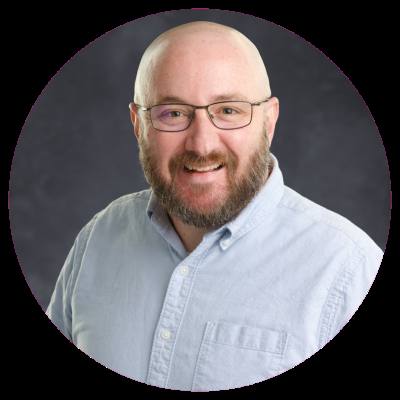Serving his community has been an integral part of Shenandoah Mayor Wes Stephens' life since he arrived in Shenandoah in 1996.
Stephens, 45, said he and his wife Gwen, a Shenandoah native, moved into the community in 1996 on the cusp of the city's economic development explosion.
It was not long until he was approached by then-Mayor David Vetter in 1997 to serve on the city's planning and zoning commission. Possessing a passion for development, Stephens said he enjoyed his time serving on the commission for four and a half years.
In 2001, Councilman Larry Kizer moved out of the city and Stephens was elected to serve out the remainder of the term. After nine years on the council, Stephens' final term expired in 2011 and he took time off to spend with his family.
However, Mayor Gary Watts opted not to run for reelection in 2012, and Stephens said he was encouraged by members of the community to run for mayor. He was elected and began serving his first term as mayor, which is up for re-election in May 2014.
The vice president of supply chain for NCS Energy, Stephens also serves on The Woodlands Area Economic Development Partnership board of directors and for the board of The Woodlands Area Chamber of Commerce, while also staying involved with the First Baptist Church of The Woodlands.
Throughout more than a decade serving the community he loves, Stephens has seen Shenandoah flourish in terms of economic development. However, he refuses to take credit for the work put in by city staff and council.
"A lot of elected officials say I've done this or I've done that, but I've done very little," Stephens said. "I want to give a lot of credit to the people who have served in these offices before me on City Council. It takes a lot of good ideas and a lot of leg work from the whole team. It's a team effort. I take no credit for any particular project."
What makes Shenandoah a special community?
Shenandoah's got a hometown feel. We have the ability, through some of our prosperity, to do a lot of unique things that larger cities and smaller cities have less ability to do, [such as] Lighting of the Angels, the luminaries–a lot of traditional things that we do, things that brings our residents out to see their neighbors a few times a year and hold that sense of community.
What are the council's most significant accomplishments?
We've done so many things. Obviously we've been very prosperous with all our commercial development, especially compared to other small cities our size. We operate as a large city from a cash flow perspective, but it allows us to provide almost unparalleled amenities for our residents and safety. Here recently we've been able to achieve the lowest ad valorem tax rate in the county. So we're trying to give back to our residents with economic prosperity. Going along with the amenities we provide, we've got almost a brand new infrastructure around our city.
What challenges does the city face?
One of our challenges is the sheer growth that we have with the type of residential and commercial situations with our properties being adjacent. We try to keep a good balance, and we try to keep proper restrictions on both. Transportation is a big issue for us, but that's more of a regional problem. In Shenandoah, we've done a lot of strategic planning. For example, we are hoping to eventually extend David Memorial [Drive] out to [Hwy.] 242. We are very diligent to work with the commissioners and the other entities in the area that have transportation issues to make sure there's a regional plan and not just individual, segmented plans.
Surrounded by larger communities, how hard is it for Shenandoah to develop its own identity?
Identity is tough, but the bottom line is that we're experiencing the prosperity. I just want the amenities to come. I want the good development. If [businesses] want to say they're in The Woodlands because it will help their business, it doesn't matter to me. If you step back and look at it as a group effort to bring economic prosperity to the area, Shenandoah will do its part.
What are some goals you have for the future of Shenandoah?
Having a background in finance, the city's budget is very important to me [as is] its ability to sustain. We've tried to put city's ordinances and zoning in place to allow our wonderful commercial sector to not only thrive, but to [also] sustain in the future. We want to see those businesses continue to prosper and stay there for the long haul and to encourage good redevelopment when that time comes. [I want] to ensure that the city is fiscally stable and good decisions are made. We agreed as a City Council recently to put one year's operating cash in the tank. We're also funding future infrastructure improvements and replacements before its needed so that we don't have to go into debt to do those things. We have a long-term goal of being debt free.
How much longer would you like to serve the city?
My term expires in May, and I'm going to reserve the right to change my mind, but at the moment I'm not planning to seek another term. I've been doing this over 15 years between all of my positions, and my family is ready for a little more dad at home. I'd like to hand over the reigns to somebody with new eyes. Let them take [Shenandoah] past where we have it now.





